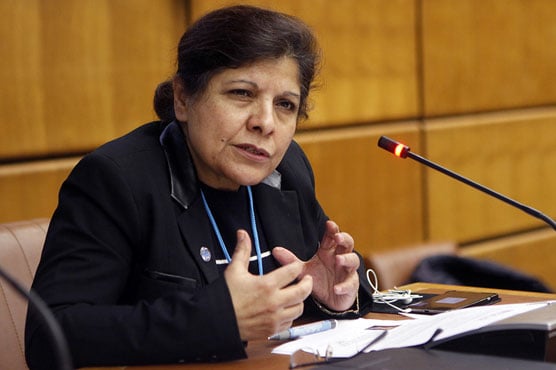By Staff Reporter
ISLAMABAD: Pakistan is seeking around $11 billion in bilateral support from China and Saudi Arabia to fill its external and domestic financing gaps as it tries to keep its IMF program on track, an interim finance minister said on Thursday.
The caretaker government, which took over in August after the assembly completed its 5-year term, is also pushing for expanding the tax base to include retail, agricultural, and real estate sectors, while cracking down on illegal currency movements.
The move comes as Pakistan faces a challenging economic situation, with dwindling foreign exchange reserves, a widening current account deficit, and a looming debt crisis. The country has been struggling to meet the targets set by the International Monetary Fund (IMF) under a $3 billion standby loan deal signed in July this year.
The interim finance minister, Dr. Shamshad Akhtar, said the government had a limited scope to undertake deep-rooted structural reforms but promised to deliver on reforms that were part of the IMF program to ensure the disbursement of the loan installment.
Talks with the IMF would begin by the end of October.
“External flows would improve with the $700 million flows from the IMF. For net bilateral financing of $11 billion, China and Saudi Arabia had been requested along with a request for a Saudi oil facility,” the minister at the Senate Standing Committee on Finance.
“To meet the external financing requirements, we are working to secure concessional funding from multilaterals (World Bank, Asian Development Bank, Islamic Development Bank) of $6.3 billion,” she said in her written statement. “The IMF had already approved $3 billion and bilateral assistance of around $10 billion was also expected.”
Akhtar explained that under the current IMF loan deal, the authorities were committed to increasing State Bank’s reserves to $9 billion (2.3 months of import cover) shortly and to $12 billion (three months of import cover) by June 2024 based on higher official inflows and pick-up in Foreign Direct Investment (FDI) under the Special Investment Facilitation Council (SIFC).
At the same time, Akhtar warned that a “key risk to external stability comes from the rise in international commodity prices”, as Brent crude oil prices have jumped to $95 per barrel in September, an increase of 27 percent from $74 per barrel in June.
The caretaker minister claimed that Pakistanis had developed a habit of living beyond means and successive governments had borrowed debts without investing them in high-return projects.
The public debt rose sharply over the last two years, mainly because of devaluations and interest rate hikes.
She said domestic debt had declined to 45.8 percent of GDP in FY23 from 47 percent in FY21 but external debt-to-GDP ratio increased to 42 percent in FY23 from 34.5 percent in FY21.
The minister said the authorities were also working on amending laws to bring retail, agriculture, and real estate into an effective tax net because no government could ever control twin deficits without doing this.
She said that agriculture tax was a provincial subject and a new government would have to fight this battle.
The minister said the biggest challenges to the fiscal side included about Rs3.2 trillion power circular debt and an almost similar gap in the gas sector and the ever-bleeding Pakistan International Airlines.
Akhtar said Pakistan was not in a position to provide subsidies and duty drawbacks to industries and exporters, who would have to change their business models to invest in exports themselves. “Only countries having $400 billion in foreign exchange reserves could afford that.”
Copyright © 2021 Independent Pakistan | All rights reserved




